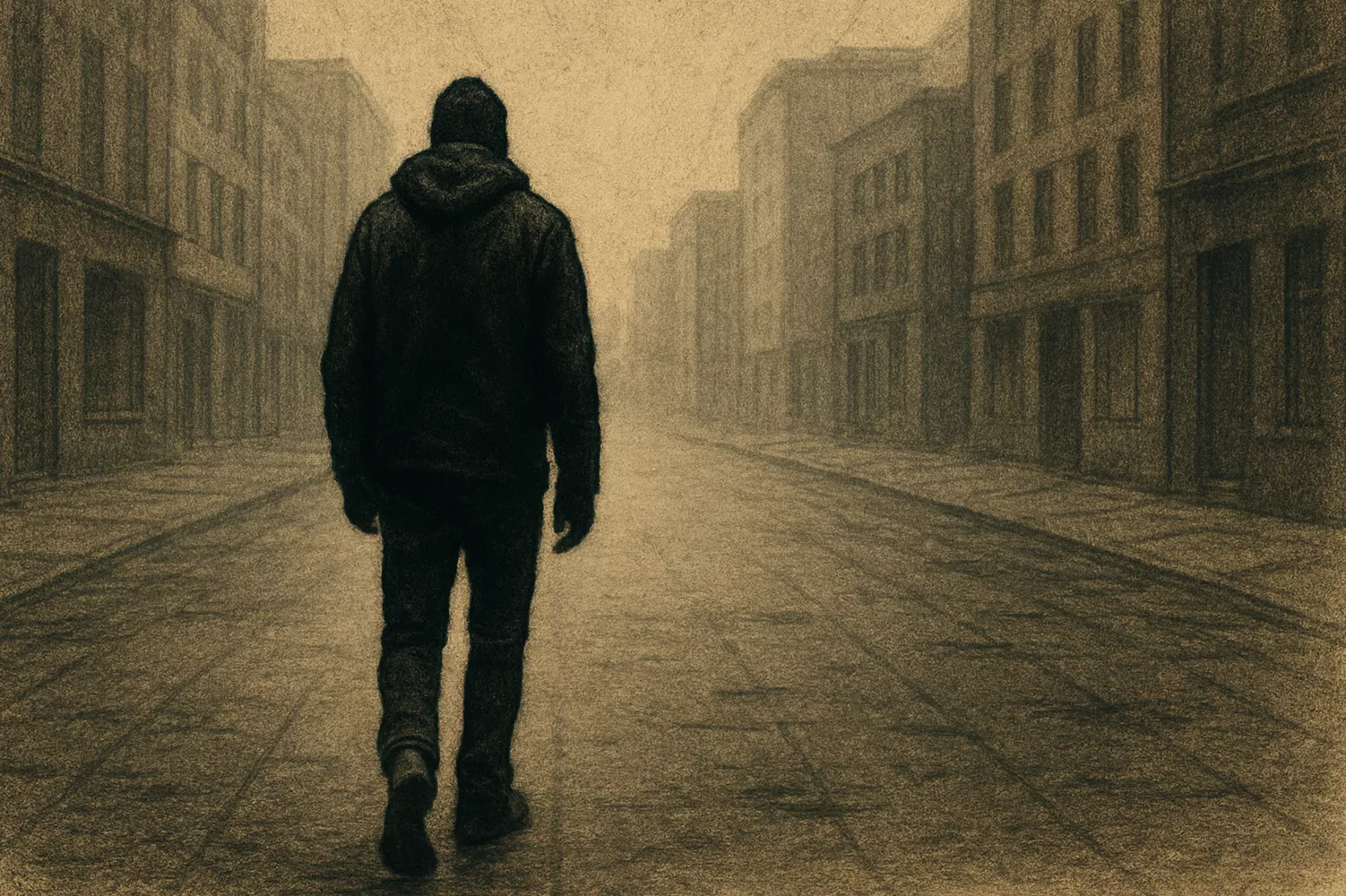
Remembering Barry & Our Utah Disability Law Firm’s Mission to Help
I looked out my office window that overlooked the busy street and saw Barry. Of course, he was yelling at the air as if there were someone standing beside him who he was not happy with. I mentally prepared myself because I knew he was headed in my direction.
Sure enough, within a few minutes Barry was walking through the door of my disability law firm. He wasn’t yelling anymore, although he was clearly agitated about something, which was a common occurrence.
Barry had schizophrenia. He frequently struggled with paranoid delusions, auditory and visual hallucinations—the trifecta of the harshest of schizophrenia symptoms.
From my years working for a disability lawyer in Utah, Barry is a client I’ll never forget.
His case was tough, and his story was tragic, but he reminded me why I do the work I do—providing support to people struggling with health and economic problems.
This is Barry’s story.
When They Need Someone to Listen
Today, our conversation about his Social Security Disability case quickly turned to a struggle he was having with the people he was living with.
He was renting a room from some random person he met. As most of his living situations did, this one was souring as he told me tales of his roommates stealing his things and playing loud music all night.
Apparently, he was so irritated with them that he was up in the middle of the night pounding on their bedroom door telling them to turn off the music, and now they were kicking him out. He was distraught—where would he go?
To be honest, I was never sure what was real or not when he told me stories. Not that I ever thought he was lying; I was sure it WAS real for him, so it didn’t really matter.
This visit was no different. His frustration with his roommate situation turned to sobbing. He didn’t understand why life was so hard for him. That conversation typically turned religious as he was sure Satan was behind all the bad things in his life, as if Satan had a personal vendetta against this poor man.
He talked to me about how he tried to read the Bible and, even though he was homeless most of the time, he carried one in the backpack that contained all his earthly possessions.
He also would tell me that as soon as his disability benefits application was approved, he was going to use the back pay to buy a suit so he could go back to church.
Most of the time, I would just sit and listen. I had no experience in my life that even compared to what he was dealing with, so listening and providing a kind word felt like the right thing to do.
Not every day was I that patient, and Barry did seem to pop in at the most inconvenient of times.
Not only that, but because of his 6’5″, 190-pound frame and boisterous entrances into the building, our office neighbors were openly unhappy about his visits—but to be fair, they complained about most of our Social Security Disability clients.
Seeing people struggling with health and money problems was uncomfortable to them.
Sometimes I wouldn’t see Barry for long periods of time, and I would wonder how he was doing, but he always seemed to come back, especially during long periods of homelessness.
Providing an Oasis
If Barry could find room in the shelter to sleep at night, they would kick him out just like everyone else really early in the morning, and he would wander the streets.
The summers were the worst as temps reached 115 degrees. Barry would show up beet red and sweating bullets. He came in to get out of the heat and chat about life for a few minutes.
On those hot days, he would always bring me some sort of friendship offering, like an orange or a fruity drink.
The experience of a homeless person with everything he owned in a backpack giving me even a small gift was probably one of the most impactful moments in my life.
Under the smelly, delusional exterior was a very kind soul who was dealt a really hard hand in life.
Medical Complications + Mental Health
One day, Barry called me from the hospital. He had significant abdominal pain and didn’t know what to do, so he went to the emergency department.
This was not the first time that this had happened. He had been in the ER a few times that month due to this mysterious abdominal pain, but as things go, he received very poor treatment by medical staff who assumed he was seeking drugs, and they turned him away without even listening or doing any tests to evaluate his pain.
This time was different. He finally convinced someone that his pain was real, and they started doing some tests only to find out this poor, schizophrenic man had Crohn’s Disease. They kept him in the hospital to try to get the flare-up under control.
After a couple of weeks, they couldn’t keep him any longer and sent him to an inpatient rehabilitation facility. He lasted one week there before they kicked him out for being out past curfew. Thus, he was on the streets again.
Facing an Unfeeling System
So here Barry was at my office again, only this time his 6’5″ frame was only supporting 140 pounds.
His fragile mind could not figure out how this new disease worked and just knew that when he ate the pain he experienced after was excruciating. At this point he was living on protein shakes, the only thing that didn’t cause him pain.
I would ask him about doctors’ appointments, hoping the hospital had referred him to a specialist that could help him understand and manage his new condition, but there was nothing.
So instead, he frequented the ER, where he was given no help and sent on his way.
I recommended some providers that may help him, but his mental capacity continued to deteriorate, and he became hyper-focused on the pain he felt rather than the root cause—as anyone would.
But that meant instead of looking for a specialist to treat the Crohn’s, he tried pain management doctors who all told him the same thing: we can’t do anything for you.
He was confused and didn’t understand why these doctors who treated pain couldn’t help him. I knew that pain management was not the answer but that a gastroenterologist was probably more equipped to help him.
But unfortunately, appointments were booked far out, so he had to wait months for that help. Those appointments would come far too late.
What Barry Taught Me
Barry continued to lose weight and became more and more mentally distraught. Until one day, I got a call from his father that he was in the hospital again. It did not look good. His body was shutting down, and soon after he passed away.
I have had clients pass away before. This was not the first, but this one hit me harder than ever before. Barry was dead because society had failed to remember that he is a human being.
As the twists and turns of Barry’s health were unfolding, we also kept getting denial after denial for his claim to get financial help from Social Security Disability.
At one point, a disability judge even ruled that his schizophrenia was severe enough to keep him from working, but because he was washing windows occasionally for cash (trying to survive), the judge ruled his schizophrenia stopped being severe in 2018, which meant he was no longer eligible for disability benefits after that date.
How could a condition like schizophrenia be severe and then not severe just based on random work activity?
Adding to the pain, because Barry’s case was for Supplemental Security Income (SSI) only, now that he had died his claim would close without ANY payout to his family. SSI is a form of disability benefit that doesn’t include survivor benefits.
It is as if Social Security didn’t want to pay him, so they just waited him out, hoping he would die so they didn’t have to.
I was also angry with the medical professionals who had consistently turned him away, assuming he was a drug addict and never took the time to educate him or help him understand what he needed to do to survive.
His position in society made it easy for him to be dismissed and passed on as someone else’s problem.
I felt so helpless. I am only one person—how can one person help ALL the people? It was so overwhelming. Finally, after months of this angry mental battle, a wise person said to me: “You can’t fix all the problems. Barry knew he could come into our office because that is where he found kindness.”
That changed everything.
At that moment, the most intense sense of purpose filled my heart. I may not be able to change a deeply broken system, but I can be the kindness that people don’t see elsewhere in the world.
That sense of purpose changed the way I see people, the way I deal with even the most troubled people and gave me motivation to do my best every day as a paralegal for disability attorneys and chief operating officer of a disability law firm.
Even now, years later, that sense of purpose drives me.
I am far from perfect and am still working on my ability to be kind, but Barry, a homeless man with schizophrenia who the world has mostly forgotten will always be a part of my journey and an inspiration for my mission to help people in times of need.
If you or anyone you know needs help with Social Security Disability benefits, contact Barnes Disability Advocates.

